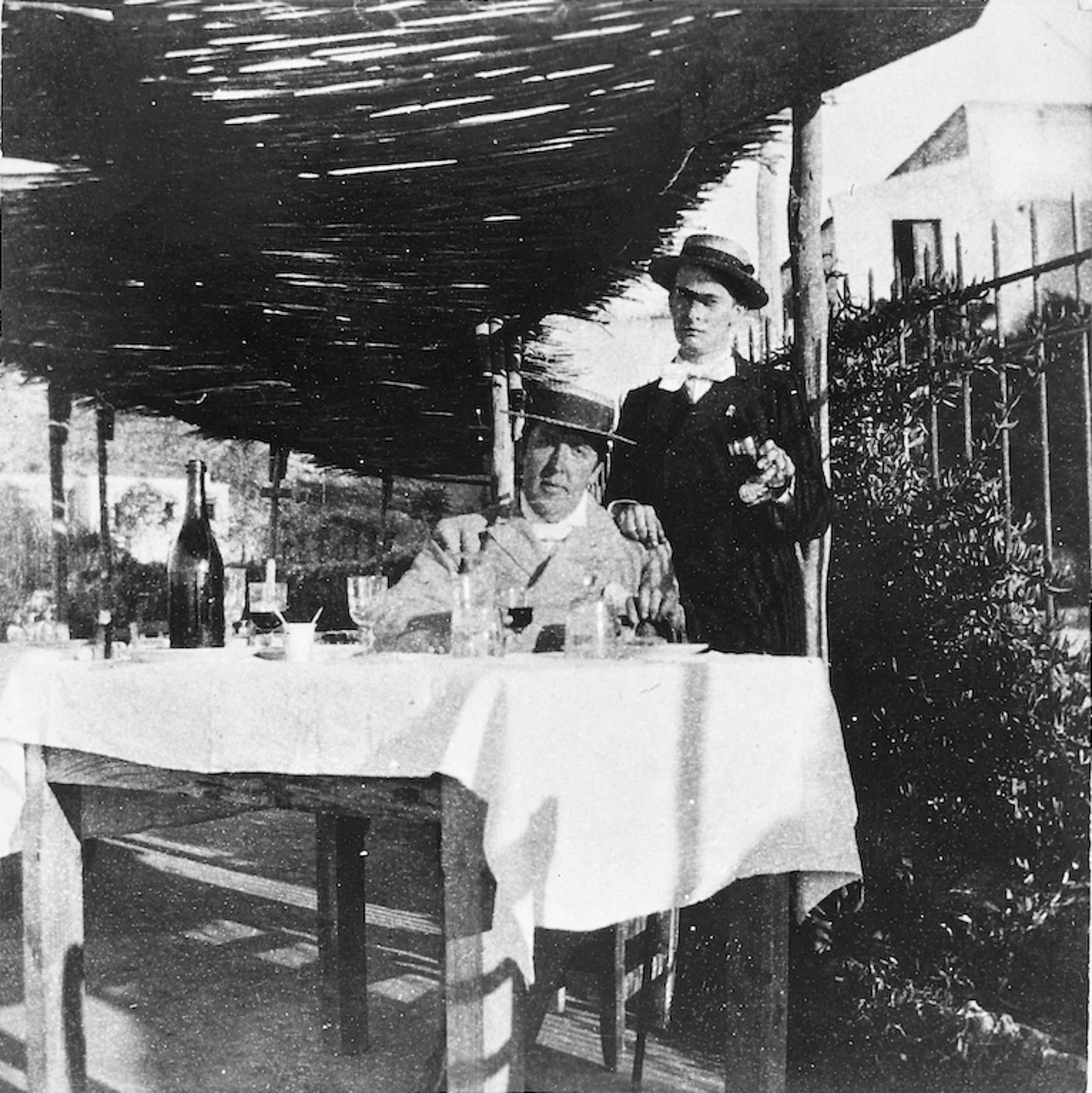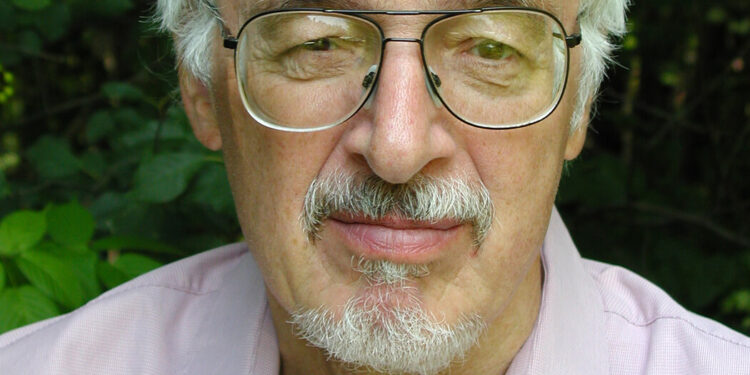November 30
SIR PHILIP SIDNEY, English courtier, soldier, and writer was born (d. 1586); the English courtier and poet was one of the leading lights of Queen Elizabeth’s court and a model of Renaissance chivalry. His Apostrophel and Stella is one of the great sonnet sequences in English and was inspired by his love for Penelope Devereaux, even though he later married Frances Walsingham. (Lest one confuse Renaissance “love” and “marriage” with the modern versions, it should be pointed out that Penelope Devereaux was twelve years old when Sidney fell in love with her, and that Frances Walsingham was a fresh fourteen when she was married to the 29-year-old courtier.
Marriages were arranged then and not made in heaven, more a real estate transaction than love matches. Sidney was in his teens when the Huguenot writer and diplomat Hubert Languet fell in love with him. Languet was 36 years his senior, lived with him for a time, and, when they parted, wrote passionate letters to him weekly. In his youth, Sidney was strongly attached to two young men, Fulke Greville and Edward Dyer, and wrote love verses to them both, a point not lost on gay John Addington Symonds when he wrote Sidney’s biography. Sidney died in battle at the age of thirty-two.
WINSTON CHURCHILL, British prime minister and statesman, born (d: 1965); In his wonderfully entertaining and informative biography of W. Somerset Maugham, Ted Morgan tells how Maugham once asked Churchill whether it was true, as the statesman’s mother had claimed, that he had had affairs with other young men in his youth. “Not true!” Churchill replied. “But I once went to bed with a man to see what it was like.” The man turned out to be musical-comedy star, Ivor Norvello. “And what was it like?” asked Maugham. “Musical” Churchill replied.
RICHARD STEVENSON LIPEZ, born on this date (d: 2022); commonly known by his pen name Richard Stevenson, was an American journalist and mystery author, most recently residing in Massachusetts. He was best known for his Donald Strachey mysteries.
Lipez was openly gay, and married his husband Joe Wheaton in 2004. He died from pancreatic cancer in March 2022, at the age of 83.
He was the author of a series of crime novels centered on an openly gay detective who, unlike the one-dimensional depictions common in the genre in the 1980s and ’90s, is not a tortured soul or a freak but a relatable character who is content with his life.
His protagonist, Donald Strachey, worked the underside of Albany, N.Y. He was named after Lytton Strachey, the early 20th-century English biographer; the name appealed to Mr. Lipez because Strachey, a gay intellectual, represented the antithesis of the stereotypical macho gumshoe.
Still, Mr. Lipez, known as Dick, respected the tough-guy tradition of the genre, and before he began writing a new book he would reread Raymond Chandler for inspiration. But Strachey is no Philip Marlowe. When his phone rings, he isn’t swilling rye from a bottle in his desk drawer or fending off dames. Rather, he’s reading The Gay Community News. Donna Summer’s disco anthems reverberate in his head. “Death Trick” takes place in 1979, before the AIDS crisis, and it includes a fair amount of carefree exuberance.
Many of Mr. Lipez’s themes, settings and plots revolve around gay issues. In “Shock to the System” (1995), Strachey goes undercover to investigate a gay conversion therapy group. “Strachey’s Folly” (1998) opens with the sleuth and his lover, Timmy, in Washington, D.C., at a display of the AIDS quilt, a vast memorial to people who have died of the disease. There, stitched into the quilt, they see the name of a man who they know is not dead.
An aficionado of detective fiction — Mr. Lipez was a freelance reviewer of mysteries for The Washington Post for three decades — he was irked that crime novels generally gave a lopsided view of gay characters, portraying them as misfits and villains who often met an unpleasant demise.
In 1968, Mr. Lipez married Hedy Harris, whom he had met in the Peace Corps, and they moved to Massachusetts, settling in the Berkshires. He became executive director of an anti-poverty agency and devoted himself to progressive causes; she became a nurse and was involved in several health and social service organizations. They divorced in 1995. She died in 2021.
Mr. Lipez and Mr. Wheaton met in 1990, when Mr. Wheaton was running a catering business and a restaurant, La Fête Chez Vous, in Stockbridge, Mass.; the eatery had previously been called the Back Room, the restaurant made famous by Arlo Guthrie’s 1967 song “Alice’s Restaurant.”
Mr. Lipez and Mr. Wheaton were among more than 70 same-sex couples who were married in towns across Massachusetts on May 17, 2004, the day the state became the first in the country to permit same-sex marriage.
Mr. Lipez wrote book reviews for Newsday in addition to The Washington Post, as well as editorials for The Berkshire Eagle and articles for Harpers, The Atlantic and Newsweek.
His first novel, “Grand Scam” (1979), which he wrote with Peter Stein and which was not part of the Strachey series, was the only one in which he used the name Lipez. Some of his Strachey novels were adapted into films for the gay cable channel Here!, but Mr. Lipez often said he was not especially happy with them.
The Strachey series is being republished by ReQueered Tales, a publisher trying to preserve the literary heritage of the L.G.B.T.Q. community. Two new books are being published posthumously: “Knock Off the Hat,” a non-Strachey crime novel about a wave of gay-bashing in 1940s Philadelphia; and his 17th Strachey novel, “Chasing Rembrandt.”
FRANK LOVERDE (or simply Loverde) was an American disco singer and musician born on this date (d: 1990); Based in San Francisco, he was active during the 1980s. Loverde worked with record producer Patrick Cowley on his greatest success, Die Hard Lover, released in 1982.
Working with Linda Imperial and her sister, Loverde made a name for himself on the San Francisco club scene as both a DJ and performer. During this time, the trio gained a record deal with Prism Records and released Iko-Iko, a record produced by Patrick Cowley and Michael Finden, in 1980. Loverde continued on the club circuit, occasionally working on studio projects, until 1982 when he was given an instrumental track by Patrick Cowley and asked to write lyrics for it. This track became "Die Hard Lover", which was recorded along with Linda Imperial and Peggy Gibbons. The trio, now calling themselves Loverde, had huge success with the single in 1982 and became celebrities in the Hi-NRG music community.
Loverde's second single was "My World Is Empty Without You", another successful release which led to television appearances and a tour. By the time of the single's release, Patrick Cowley was becoming increasingly ill, suffering from AIDS, and was unable to contribute anything more than simple synthesizer riffs. Production credits on the single went to Bill Motley and Horus Jack Tolson. Following Cowley's death in 1982, Loverde was unable to repeat its earlier success with new music produced without Cowley's input. They recorded Backstreet Romance in 1983, but the record was a commercial failure. Loverde's last works were "Love Takes Me Higher" and "Manifestation of Love", both released in 1987. After the collapse of Megatone Records in 1988, Loverde was unable to find a new contract.
In the late 1980s, Frank Loverde contracted the AIDS virus. The illness had obliterated the music industry in San Francisco and many of Loverde's acquaintances had already died from the virus. He died just before Christmas on December 20, 1990 at the age of 43.
KEVIN CONROY was an American actor born on this date (d: 2022). He is best known as the voice behind the DC Comics superhero Batman in various media, beginning on the 1990s Warner Bros. television series Batman: The Animated Series as well as other TV series and feature films in the DC Animated Universe. Due to the popularity of his performance as Batman, Conroy went on to voice the character for multiple films under the DC Universe Animated Original Movies banner and the critically acclaimed Batman: Arkham and Injustice video games. He was widely considered to be the best Batman voice in the business.
Conroy was born in Westbury, New York, into an Irish Catholic family. The family moved to Westport, Connecticut, when he was about 11 years old. Conroy moved to New York City in 1973 when he earned a full scholarship to attend the Juilliard School's drama division, studying under actor John Houseman. While there, he roomed with Robin Williams, who was in the same group as both Conroy and Kelsey Grammer. After graduating from Juilliard in 1978, he toured with Houseman's acting group The Acting Company, and the following year he went on the national tour of Ira Levin's Deathtrap.
Conroy is distinguished for being the first voice actor to use two distinct voices to portray Bruce Wayne and Batman, which Michael Keaton had previously done in Tim Burton's live-action Batman films. In a tally of that actor's performances that include his every episode and movie portrayal of Batman in live-action and animation, Conroy portrayed the character longer than any other actor. Apart from the DCAU, Conroy also portrayed Batman in the direct-to-video DC Universe Animated Original Movies: Batman: Gotham Knight (2008), Superman/Batman: Public Enemies (2009), Superman/Batman: Apocalypse (2010), Justice League: Doom (2012), Justice League: The Flashpoint Paradox (2013), Batman: Assault on Arkham (2014), Batman: The Killing Joke (2016), and Justice League vs. the Fatal Five (2019).
After the September 11, 2001 attacks in New York City, Conroy participated in relief efforts by volunteering to cook for police officers and firefighters. During an audio commentary on Batman: Gotham Knight, Conroy expressed his surprise at the reaction of the emergency service workers to his presence. At the behest of another cook, Conroy called out from the kitchen to the dining area in his "Batman voice", reciting the iconic line, "I am vengeance! I am the night! I am Batman!" (from the Batman: The Animated Series episode "Nothing to Fear"). This was greeted by cheers and applause from emergency service personnel, many of whom had been fans of Batman: The Animated Series during its airing in the 1990s. Conroy confessed to being humbled and deeply flattered by the reaction.
Conroy was out gay. As part of DC Comics' 2022 Pride anthology, Conroy wrote "Finding Batman", a story that recounted his life and experiences as a gay man. It received critical acclaim upon release.[e was married to Vaughn C. Williams at the time of his death.
Conroy died at Mount Sinai Hospital in New York City from intestinal cancer on November 10, 2022, at the age of 66.
CLAY AIKEN, American singer, born; Rolling Stone magazine featured Aiken on the cover of their July 2003 issue. In the cover article Aiken said, "One thing I've found of people in the public eye, either you're a womanizer or you've got to be Gay. Since I'm neither one of those, people are completely concerned about me."
In subsequent interviews he has expressed frustration over continued questions about his sexual orientation, telling People magazine in 2006, "It doesn't matter what I say. People are going to believe what they want." Right. Whatever. Musical.
After several years of public speculation, Aiken confirmed that he is Gay in a September 2008 interview with People magazine. Quelle surprise. In April 2009, Aiken was honored by the Family Equality Council advocacy group at their annual benefit dinner in New York City. For what we're not exactly clear. One suspects it wasn't for bravery or courage.
Aiken created the National Inclusion Project (formerly the Bubel/Aiken Foundation) in 2003, and he accepted a UNICEF ambassadorship in 2004, a position he held for 9 1/2 years until 2013 when he gave it up in order to run for Congress. He was the "UNICEF Ambassador of Education for All Children Worldwide"; he traveled extensively on their behalf in this role. In 2006, he was appointed for a two-year term to the Presidential Committee for People with Intellectual Disabilities.
Aiken made his Broadway debut playing the role of Sir Robin in Monty Python’s Spamalot in January 2008. His run ended in May, but he rejoined the cast as Sir Robin in September and remained through January 2009.
In 2014, Aiken announced his intentions to run for Congress in North Carolina’s 2nd District. He won the Democratic primary held on May 6, 2014, but lost to Republican incumbent Renee Elmers in the general election on November 4, 2014.

OSCAR WILDE, Irish writer, wit and raconteur died (b. 1854); Prison was unkind to Wilde's health and after he was released on May 19, 1897 he spent his last three years penniless, in self-imposed exile from society and artistic circles. He went under the assumed name of Sebastian Melmoth, after the famously "penetrated" Saint Sebastian and the devilish central character of Wilde's great-uncle Charles Robert Maturin's gothic novel Melmoth the Wanderer.
Nevertheless, Wilde lost no time in returning to his previous pleasures. According to Douglas, Ross "dragged [him] back to homosexual practices" during the summer of 1897, which they spent together in Berneval.
After his release, he also wrote the famous poem The Ballad of Readying Gaol. Wilde spent his last years in the Hôtel d'Alsace, now known as L’Hôtel, in Paris, where he was notorious and uninhibited about enjoying the pleasures he had been denied in England. Again according to Douglas, "he was hand in glove with all the little boys on the Boulevard. He never attempted to conceal it." In a letter to Ross, Wilde laments, "Today I bade good-bye, with tears and one kiss, to the beautiful Greek boy. . . he is the nicest boy you ever introduced to me." Just a month before his death he is quoted as saying, "My wallpaper and I are fighting a duel to the death. One or other of us has got to go."
His moods fluctuated; Max Beerbohm relates how, a few days before Wilde's death, their mutual friend Reginald 'Reggie' Turner had found Wilde very depressed after a nightmare. "I dreamt that I had died, and was supping with the dead!" "I am sure," Turner replied, "that you must have been the life and soul of the party." Reggie Turner was one of the very few of the old circle who remained with Wilde right to the end, and was at his bedside when he died. On his deathbed he was received into the Roman Catholic church for some odd reason. Perhaps he really had lost his mind. Wilde died of cerebral meningitis on November 30, 1900.
Wilde was buried in the Cimitiere de Bagneaux outside Paris but was later moved to Père Lachaise in Paris. His tomb in Père Lachaise was designed by sculptor Sir Jacob Epstein, at the request of Robert Ross, who also asked for a small compartment to be made for his own ashes. Ross's ashes were transferred to the tomb in 1950. The numerous spots on it are lipstick traces from admirers.
The modernist angel depicted as a relief on the tomb was originally complete with male genitals. They were broken off as obscene and kept as a paperweight by a succession of Père Lachaise cemetery keepers. Their current whereabouts are unknown. In the summer of 2000, intermedia artist Leon Johnson performed a forty minute ceremony entitled Re-membering Wilde in which a commissioned silver prosthesis was installed to replace the vandalized genitals.
Subscribe to Gay Wisdom
Would you like to have Today in Gay History (aka Gay Wisdom) sent to you daily?






